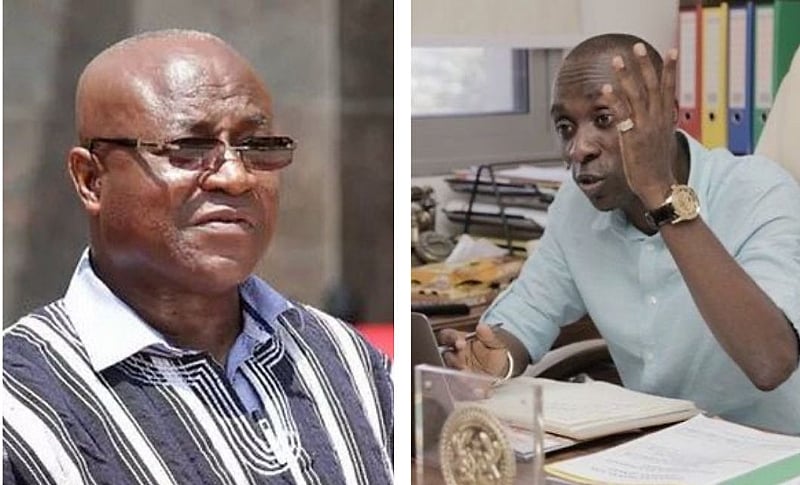The internal dynamics of Ghana’s New Patriotic Party (NPP) have become increasingly fraught with tension as the race for the party’s flagbearer position intensifies. A war of words has erupted between supporters of key contenders, particularly between those aligned with Kennedy Ohene Agyapong and those backing Vice President Dr. Mahamudu Bawumia. This recent escalation stems from comments made by Osei Kyei-Mensah-Bonsu, former Majority Leader and a prominent figure in Bawumia’s campaign, cautioning delegates against being swayed by “fancy talkers,” a remark interpreted by Agyapong’s camp as a veiled attack on their candidate. Despite Kyei-Mensah-Bonsu’s subsequent clarification that his statement was not directed at Agyapong, the damage had been done, sparking a fiery rebuttal from Agyapong’s supporters, including Ernest Owusu Bempah, a Deputy National Communications Director of the NPP.
Owusu Bempah launched a scathing attack on Kyei-Mensah-Bonsu, labeling him the “worst MP in NPP history” and questioning his contributions to his constituency. He further alleged that Kyei-Mensah-Bonsu’s criticism of Agyapong was motivated by a promised running mate position, a claim that underscores the perceived stakes and potential power plays within the party. This accusation highlights the undercurrents of ambition and political maneuvering that often accompany such leadership contests, adding another layer of complexity to the already heated rivalry between the Agyapong and Bawumia camps. The public nature of this exchange not only exposes internal divisions within the NPP but also raises questions about the potential impact of such discord on the party’s unity and electoral prospects.
The controversy surrounding Kyei-Mensah-Bonsu’s comments and Owusu Bempah’s subsequent response underscores the sensitivity of the ongoing flagbearer race and the heightened emotions it has generated within the NPP. The interpretation of seemingly innocuous statements as targeted attacks reflects the prevailing atmosphere of suspicion and rivalry. The accusations and counter-accusations highlight the deep divisions within the party and the potential for these divisions to escalate into more significant conflicts. The public airing of these internal disputes raises concerns about the party’s ability to present a united front as it prepares for the upcoming elections.
This latest clash is not an isolated incident but rather the latest manifestation of the growing tension between the Agyapong and Bawumia factions within the NPP. Agyapong, known for his outspokenness and populist appeal, presents a stark contrast to Bawumia, who is seen as the more traditional and establishment choice. This fundamental difference in style and approach has contributed to the polarization within the party, with each camp vying for influence and control. The ongoing battle for the hearts and minds of NPP delegates has created a highly charged environment where even minor disagreements can quickly escalate into major confrontations.
The intensity of the rhetoric employed by both sides, as exemplified by Owusu Bempah’s harsh criticism of Kyei-Mensah-Bonsu, raises concerns about the potential for lasting damage to the party’s image and unity. Such public displays of infighting can erode public trust and confidence in the party’s leadership. Moreover, it can create a distraction from the important policy debates and discussions that should be taking place within the party. The focus on personal attacks and internal squabbles can overshadow the substantive issues facing the country and hinder the party’s ability to effectively address them.
Moving forward, the NPP faces the challenge of managing these internal divisions and ensuring that the competition for the flagbearer position does not irrevocably fracture the party. The leadership will need to find ways to bridge the divides and foster a greater sense of unity and common purpose. Failure to do so could have serious consequences for the party’s electoral prospects and its ability to govern effectively. The ongoing internal power struggle serves as a reminder of the importance of internal cohesion and the need for party leaders to prioritize the collective good over individual ambitions. The future of the NPP may well depend on its ability to navigate these turbulent waters and emerge stronger and more united.














